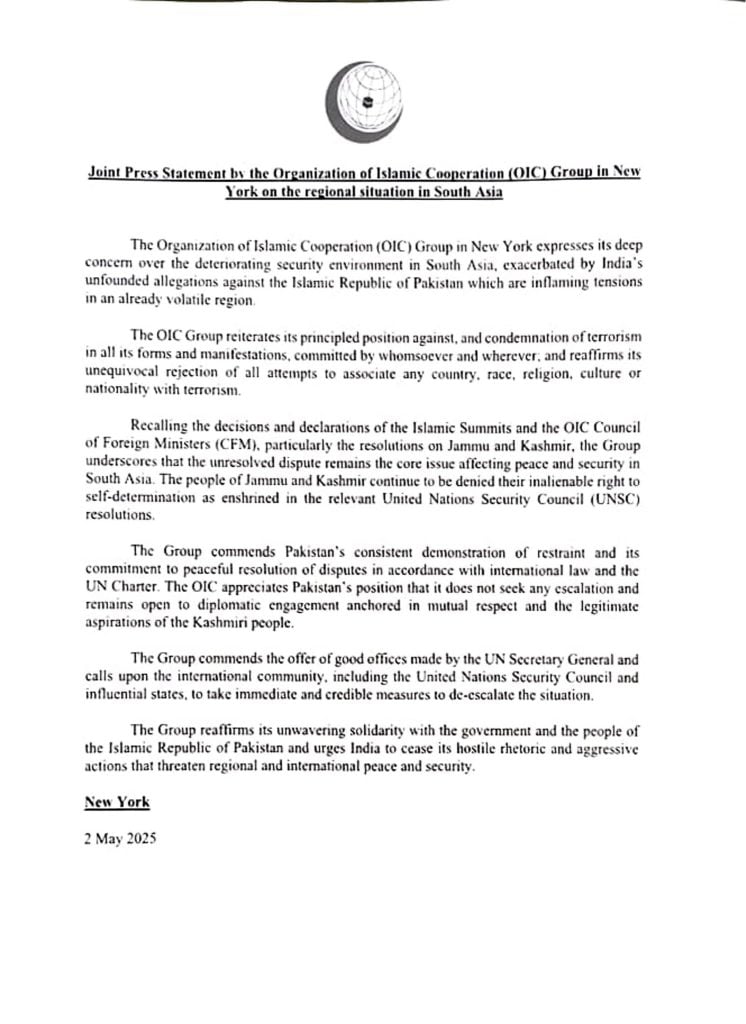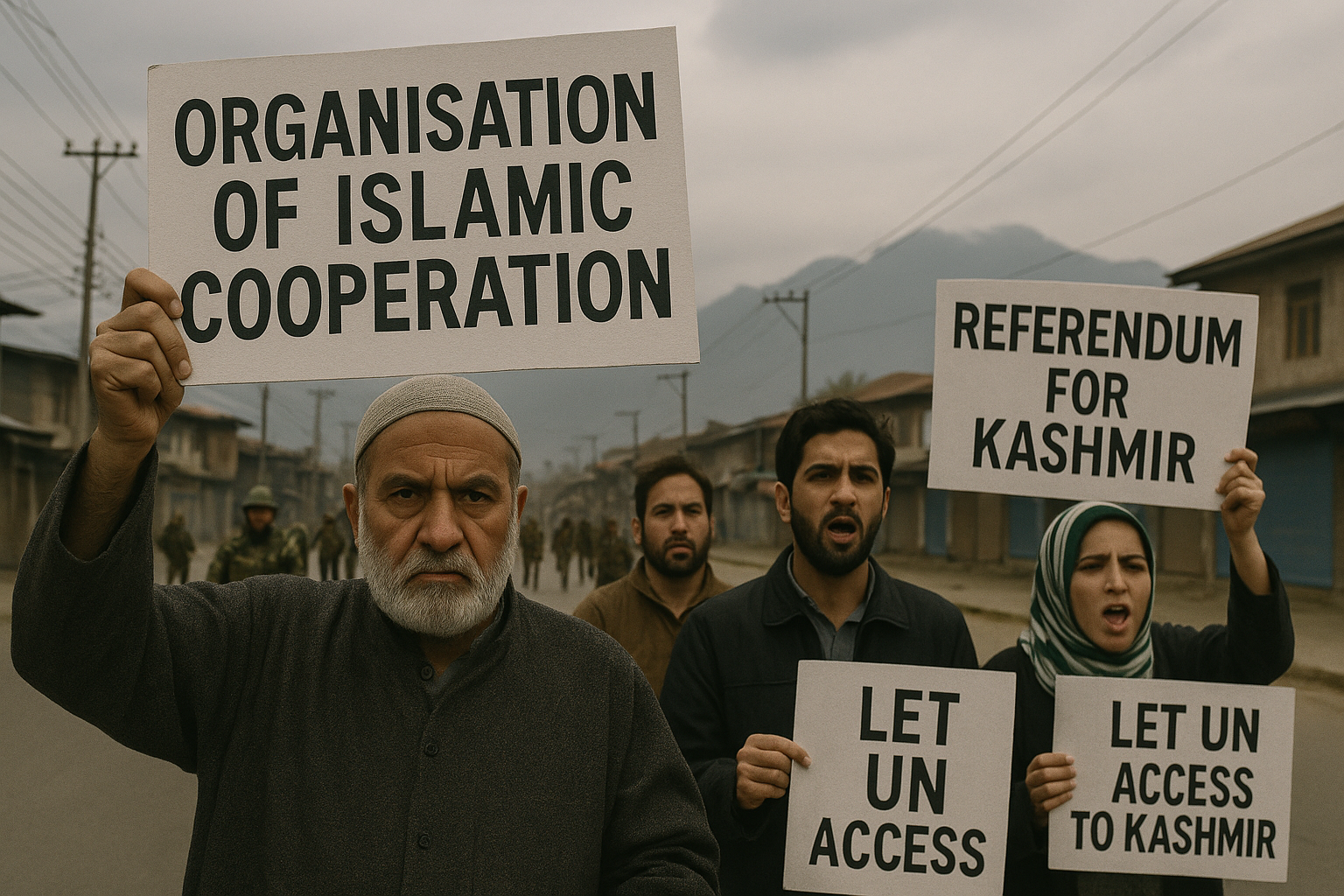The Organisation of Islamic Cooperation (OIC) has issued a sharp statement accusing India of escalating tensions in South Asia, particularly over the Kashmir dispute, and has called for United Nations access to the region along with a referendum to determine its future. The remarks were made in a joint press release from New York on May 2, 2025, and are likely to further strain India-OIC relations amid rising military tensions along the Line of Control (LoC).
The 57-member OIC criticized India for what it described as “unfounded allegations” against Pakistan and commended Islamabad for its restraint following a deadly militant attack in Pahalgam, Indian-administered Kashmir. That attack triggered cross-border gunfire and a diplomatic fallout between the two nuclear-armed neighbors, marking the most serious escalation since the 2019 Pulwama-Balakot crisis, according to the Center for Preventive Action’s Global Conflict Tracker.
The Kashmir issue remains a deeply contentious legacy of the 1947 Partition, with both India and Pakistan claiming the region and having fought multiple wars over it. The OIC, long viewed as supportive of Pakistan’s position, reiterated its demand for the “self-determination” of the Kashmiri people, echoing Pakistan’s call for a plebiscite under UN supervision. India, however, maintains that Kashmir is an integral and sovereign part of its territory and has consistently rejected third-party involvement in the matter.
India’s exclusion from the OIC, despite hosting the third-largest Muslim population globally—expected to become the largest by 2060—has often been attributed to Pakistan’s opposition. The OIC charter requires member states to be constitutionally Islamic and free of disputes with existing members, criteria cited by Pakistan to block India’s membership. India’s invitation to the OIC’s inaugural 1969 summit was withdrawn after Pakistani objections, setting the tone for decades of exclusion.
The OIC statement also condemned Indian policies in Kashmir, such as the Armed Forces Special Powers Act (AFSPA), which grants security forces wide authority in disturbed areas. The group equated the secessionist movement with a legitimate independence struggle—language India has routinely condemned as biased and inflammatory.

Critics of the OIC argue that the organization’s selective focus on Kashmir undermines its credibility, particularly as it remains silent on human rights abuses in member states like China, Saudi Arabia, and Iran. Beijing’s treatment of Uyghur Muslims and its growing influence within the OIC have raised further concerns about the body’s impartiality.
While the Indian government has not yet formally responded to the OIC’s latest statement, previous patterns suggest a strong rebuttal is imminent. India has regularly dismissed such interventions, citing its commitment to constitutional rights, regional peace, and national sovereignty. It also accuses Pakistan of using international platforms to deflect attention from its alleged sponsorship of terrorism—an allegation Islamabad denies.
With tensions simmering and no sign of immediate de-escalation, the OIC’s renewed call for international involvement is unlikely to change India’s long-standing stance. However, the situation has re-focused global attention on the volatile Kashmir issue, with diplomatic observers warning of potential wider regional instability if hostilities are not curbed.













